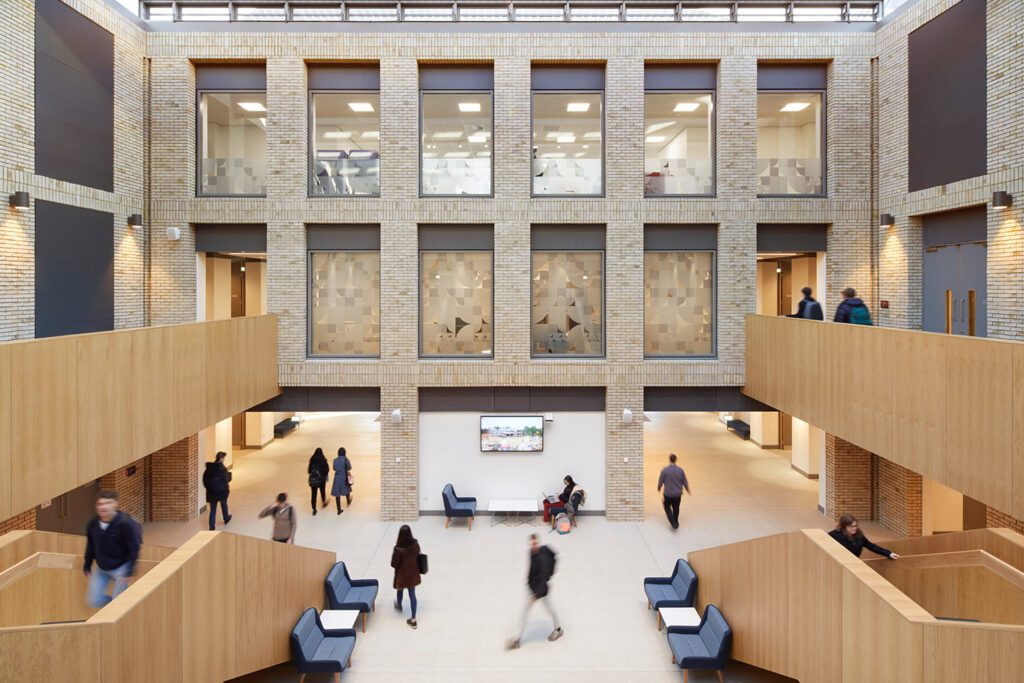
Data-based urban development in India
India
Project details
Client
Deutsche Gesellschaft für Internationale Zusammenarbeit (GIZ) GmbH
Collaborator
Indian Ministry of Housing & Urban Affairs (MoHUA)
Duration
2022 – 2023
Services provided by Buro Happold
Advisory, Smart building consultancy, Smart places, digital and data advisory
Smart and citizen-centred processing and sharing of data is key for liveable urban futures. Common enabling data platforms offer the opportunity to meet challenges with innovation and to unlock new potential by making them available to governments, citizens, academia, and industry.
Data platforms provide valuable insights into the functioning of cities by collecting, analysing, and disseminating data about urban areas. These platforms can help city planners, policy makers and other stakeholders make informed decisions about issues such as transportation, housing, infrastructure, public health, and environmental sustainability.
Buro Happold was engaged by the Deutsche Gesellschaft für Internationale Zusammenarbeit (GIZ) GmbH, which was working with the Indian Ministry of Housing & Urban Affairs (MoHUA) to support India in its mission to roll out its national strategy ‘DataSmart Cities: Empowering Cities through Data’ (2019), to create a culture of data across 100 cities and promote sustainable, citizen-centred urban development.
The “Smart Cities Mission” was originally launched by Prime Minister Narendra Modi in 2015, with an investment of 98,000-crore (the equivalent of US$12bn) to power forward the development of 100 smart cities and the rejuvenation of 500 others. We engaged with the GIZ’s International Smart Cities Network (ISCN), with its focus on mainstreaming digital solutions in urban processes and making it possible to share successful models and experiences globally.

Challenge
Our team’s scope was to assess and baseline the current state of urban data platforms that were developed by the national government of India. We could then advise on ways the cities could use these platforms to visualise, share and exchange data. This would enable the development of a wider programme to build capacity around clear data management and insightful data interrogation, while building greater co-operation between the many different stakeholders and municipalities.
The first urban data platform, the Smart Cities Open Data Platform (SCODP), was implemented in February 2019 after launching the nationally-led DataSmart Cities Strategy. Since then, four more platforms were launched, Integrated Command and Control Centres were established and City Data Officers were appointed to roll out the Strategy across the entire country.
Our study aims to understand the Indian experience with five nationally established Urban Data Platforms to provide insights into the role and responsibilities of the national government in data collection and management. The study assesses the usability of these platforms for cities and provides recommendations for their future operation and potential growth, as well as insights into replication and leveraging potential for other cities within the ISCN network. We would need to determine how user-friendly each of the individual platforms is, how accessible the data is, as well as assessing the quality of the data being recorded.
Opportunities of platforms include increased knowledge sharing and cross-learning between cities, external collaboration with research institutions and private partners, and improved coordinated governance processes and systems. Challenges include uncertainty about the purposes of the different platforms, difficulties in coordinating them all, disparities in digitalisation for cities with less resources as well as gaps in the functionalities of the platforms and in the data availability. Despite these challenges, Urban Data Platforms in India have the potential to lead to increased productivity in government systems and processes.

Solution
The national government in India plays a significant role in the creation and management of Urban Data Platforms. The national government also incentivises the 100 Smart Cities to use the national platforms through the provision of funding and technical support, developing national data policies and standards, regulating data access and security, but also providing data, including open-source data, wherever possible.
While the national government focuses on the management of Urban Data Platforms and the monitoring of their use, the Indian city governments and other bodies are responsible for collecting and managing the data available on those platforms on a wide range of urban-related topics, such as population, land use, infrastructure, transportation, and environmental conditions. Industry, the third sector and academia can all be consumers of data as well as important contributors to the datasets.
Understanding the wealth of different stakeholders in the far-reaching data ecosystems was a critical part of our initial assessment process, allowing us to build a picture of not only what data was being recorded, but how it was usefully being used in directing smarter urban development decisions.
Each platform was assessed using a Platform Assessment Framework developed for the task by the Buro Happold team. Each Key Performance Indicator (KPI) score, evaluated against benchmarks identified in Good Practice, was given under the Quality, Accessibility and Usability categories, together with the corresponding metric, and additional explanation of the scoring. This gradually built an insightful picture of how platforms are being used in practice and in which areas they complement each other.
The process was also able to usefully highlight case studies where data is being impactfully used, such as an app developed to improve the safety of women navigating the streets at night by overlaying streetlight data on a city map – allowing them to choose the safest route home. Another prototype project saw New Delhi Municipal Council (NDMC) interrogating datasets to analyse pollution and identify factors responsible for high levels of bad air at hotspots in areas around the city. The data, sourced from 18 environment sensors around the city, is now informing traffic management policies and allow decision-makers to push the most environment-friendly initiatives.
Our experts interviewed a broad range of stakeholders, including the platform developers making use of datasets to create useful transformational platforms. We also logged in to the platforms as users to test the performance of the technology, using an agreed platform assessment framework to provide a qualitative account of the use and uptake of the platforms at the national and local level. This enabled us to compare the strengths and weaknesses of the different platforms.

Value
The five national Urban Data Platforms developed over the years from 2019 through 2022 provide a solid basis after three years of implementation among India’s 100 Smart Cities, which can be rolled out to scale across the country. Learnings need to be shared globally. India is now at a crossroads to move towards the sustainable and inclusive utilisation of data for urban development across all its cities.
While the centralisation of the platforms and policies at the national scale can be effective in unifying standards and encouraging participation, decentralisation of some of the efforts, through the state level or in-between cities could also have positive effects in the future. Further research is recommended to understand the economic potential of data and platform monetisation as well as balancing between monetisation and an open and accessible data culture.
Consideration of integrating existing financial systems within the national government, such as the tax system or other financial levees, could also be established. Incentive mechanisms, such as establishing challenge-driven programmes and competitions with prizes, or even sanctioning (taxing), to increase participation in Urban Data Platforms practically should be explored. Investment priorities should be implemented using a multi-criteria assessment, identifying incurred preparation, development, implementation and operationalisation costs, impact, cross-benefits, unexpected consequences, timelines, enabling factors, targets and milestones. This would help with prioritising actions and thus investment.
Many existing cities already have excellent competencies in digitalisation. Platforms are tools to capitalise on this knowledge. The use of platforms enables increasing knowledge transfer and sharing between cities. The assessment study developed by our team was able to both showcase these strengths across the nation in building smart city infrastructure, but also helped to identify the most efficient improvements that would have a real systemic impact to improve the network of data platforms. Alongside the report, the assessment provided insight for a special event, “The Online Advisory Programme”, in which GIZ invited stakeholders from the International Smart Cities network to examine and discuss the opportunities around urban data platforms.
Find out more: https://www.smart-city-dialog.de/en/iscn/data-platforms-india













